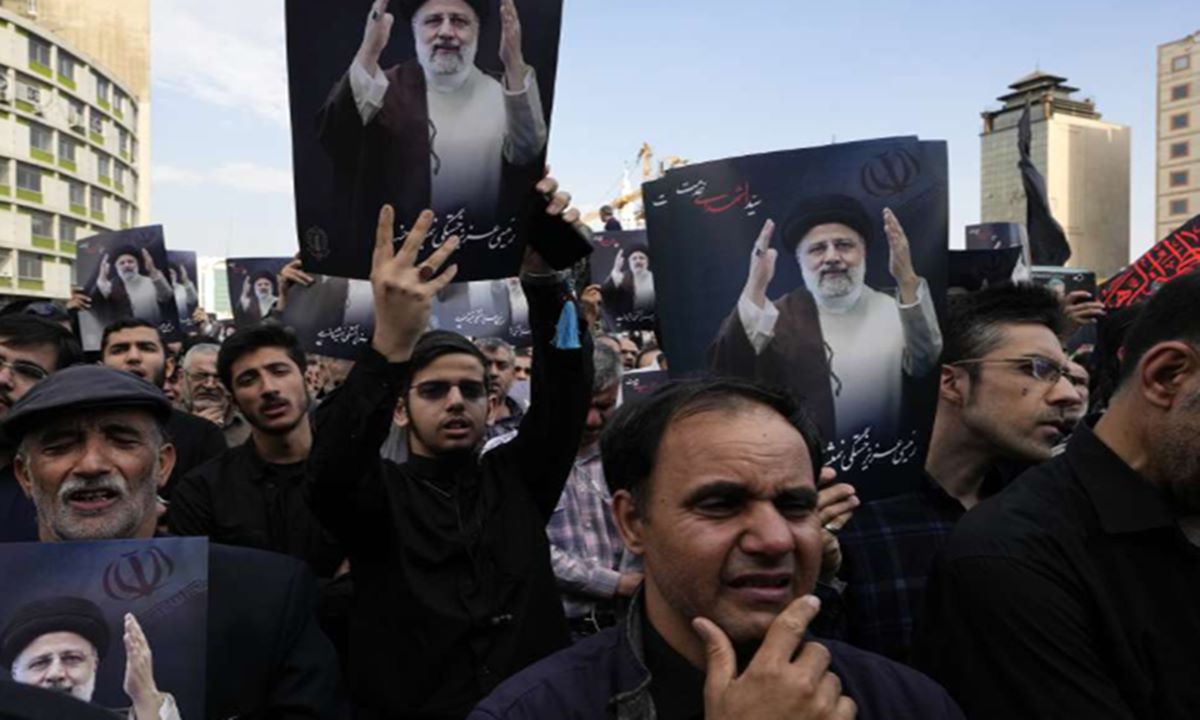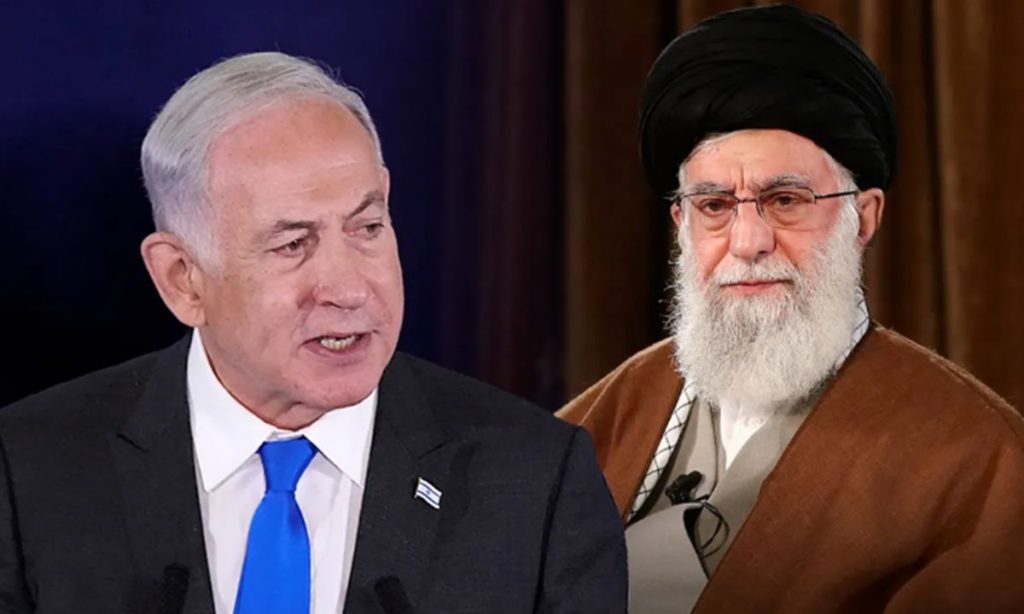The recent helicopter crash involving Iranian President Ebrahim Raisi, the country's foreign minister, and other officials is an incident with potential ripple effects that could resonate throughout the Middle East. This event is significant not only due to the high-profile nature of those involved but also because of Iran's extensive influence in the region, especially through its support for various armed groups

The recent helicopter crash involving Iranian President Ebrahim Raisi, the country’s foreign minister, and other officials is an incident with potential ripple effects that could resonate throughout the Middle East. This event is significant not only due to the high-profile nature of those involved but also because of Iran’s extensive influence in the region, especially through its support for various armed groups. These groups operate in countries like Lebanon, Syria, Iraq, Yemen, and the Palestinian territories, enabling Iran to project its power and deter potential attacks from its adversaries, primarily the United States and Israel.
Rising Tensions and Military Confrontations
Tensions between Iran and Israel have been escalating, particularly highlighted by the events of last month. Under the leadership of President Raisi and Supreme Leader Ayatollah Ali Khamenei, Iran launched hundreds of drones and ballistic missiles at Israel. This aggressive action was in retaliation for an airstrike on an Iranian Consulate in Syria, which resulted in the deaths of two Iranian generals and five officers. The Israeli response, bolstered by support from allies such as the United States, Britain, and Jordan, involved intercepting nearly all the projectiles and launching a counter-strike against an air defense radar system in Isfahan, Iran.
This exchange marked the first direct military confrontation between the two nations, which have otherwise been engaged in a shadow war involving covert operations and cyberattacks for years. The ongoing conflict between Israel and Hamas has further complicated the situation, drawing in other Iranian allies and raising the stakes for a broader regional war. In such a volatile environment, the crash of a helicopter carrying key Iranian officials could serve as a catalyst for further escalation.
Iran and Israel: A Bitter Rivalry
The animosity between Iran and Israel is longstanding and multifaceted. Israel views Iran as its greatest threat, citing Tehran’s controversial nuclear program, its ballistic missile arsenal, and its support for armed groups dedicated to Israel’s destruction. Iran, positioning itself as the chief patron of Palestinian resistance, has consistently called for the eradication of Israel.

President Raisi, known for his hard-line stance and seen as a potential successor to Khamenei, recently condemned Israel, accusing it of oppressing Palestinians for 75 years. His rhetoric included calls for expelling Israelis, making them pay for damages, and bringing them to justice. Over the years, Israel has reportedly conducted numerous attacks targeting senior Iranian military officials and nuclear scientists. While there is no evidence linking Israel to the recent helicopter crash, such incidents inevitably heighten suspicions and tensions.
The Influence of Iran’s Allies
Iran’s network of regional allies, including Hezbollah in Lebanon, militias in Syria and Iraq, and the Houthis in Yemen, plays a crucial role in its strategy. These groups often act as proxies for Iran, engaging in conflicts that serve Tehran’s interests. For example, Hezbollah has been engaged in a low-intensity conflict with Israel along the Israel-Lebanon border since the start of the Gaza war. While this has forced many to flee, it has not yet escalated into a full-blown war.
Similarly, Iranian-backed militias in Syria and Iraq have targeted US bases, prompting retaliatory strikes from the US. In Yemen, the Houthi rebels have launched attacks on international shipping, portraying these actions as part of a blockade against Israel. These dynamics illustrate how Iran leverages its allies to exert influence and maintain pressure on its adversaries.
The Broader Impact Beyond the Middle East
Iran’s influence extends beyond its immediate region, particularly through its nuclear ambitions and its burgeoning alliance with Russia. The international community, especially Western nations, has long suspected Iran of pursuing nuclear weapons under the guise of a peaceful atomic program. The withdrawal of the United States from the landmark nuclear deal in 2018 and the subsequent re-imposition of sanctions led Iran to abandon the deal’s limitations on its nuclear program.
Today, Iran is enriching uranium to levels near weapons-grade, raising alarm among non-proliferation advocates. Despite Iran’s insistence that its nuclear program is purely peaceful, many in the international community believe it had an active nuclear weapons program until 2003. Israel, widely believed to be the only nuclear-armed power in the Middle East, views this development with particular concern.
Moreover, Iran has become a key ally of Russia, especially in the context of the Ukraine war. Iranian-supplied drones have wreaked havoc on Ukrainian cities, despite Iranian officials’ denials and contradictory statements. This alliance further complicates global geopolitics, intertwining Middle Eastern conflicts with broader international disputes.
Domestic and Regional Implications of the Helicopter Crash
The helicopter crash that involved President Raisi and other top officials not only creates immediate concern within Iran but also has significant regional implications. Domestically, the incident could lead to a power vacuum or a reconfiguration of the political landscape if Raisi or other key officials were incapacitated. Such a scenario could affect Iran’s foreign policy and its support for regional allies.
Regionally, the crash could embolden Israel and its allies, sensing a moment of potential weakness in Tehran. Conversely, it could also trigger a surge of aggressive actions from Iranian-backed groups, aiming to demonstrate strength and solidarity with the Iranian leadership. The delicate balance of power in the Middle East could thus be significantly disrupted, with unpredictable consequences.
The Role of Media and Public Perception
The immediate aftermath of the helicopter crash will likely be shaped by how the event is portrayed in the media and perceived by the public. Both Iran and Israel, as well as their respective allies, will seek to control the narrative to their advantage. For instance, Iran might use the incident to rally domestic and regional support, portraying the crash as a symbol of martyrdom and resilience.
On the other hand, Israel and its allies could highlight the incident as a sign of Iranian instability or vulnerability. The global media coverage and the reactions of international actors will play a critical role in shaping the subsequent political and military developments.
Long-Term Strategic Considerations
In the long term, the helicopter crash could have profound implications for Iran’s strategic calculus. If the incident leads to a leadership change or a shift in policy, it could alter Iran’s approach to its regional alliances and its adversarial relationships. This could potentially open new avenues for diplomacy or, alternatively, escalate existing conflicts.
For Israel, the incident underscores the importance of maintaining a robust defense posture and fostering strong alliances, both within the region and beyond. The support of the United States and other allies will remain crucial as Israel navigates the complex and often hostile landscape of Middle Eastern geopolitics.
Conclusion
The helicopter crash involving Iranian President Ebrahim Raisi and other top officials is an event with far-reaching implications for the Middle East and beyond. It highlights the fragile and volatile nature of regional politics, where unexpected incidents can trigger significant shifts in power dynamics. As Iran, Israel, and their respective allies navigate the aftermath, the incident underscores the interconnectedness of regional and global geopolitics, where local events can reverberate across the world stage.

